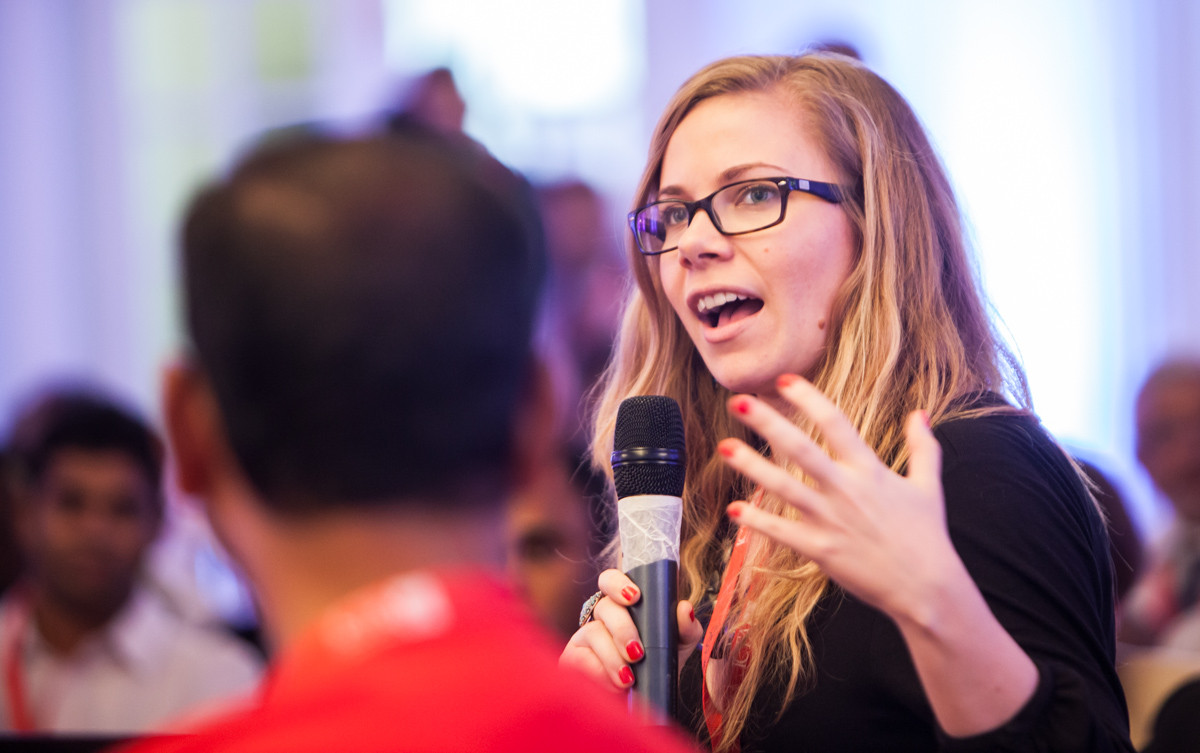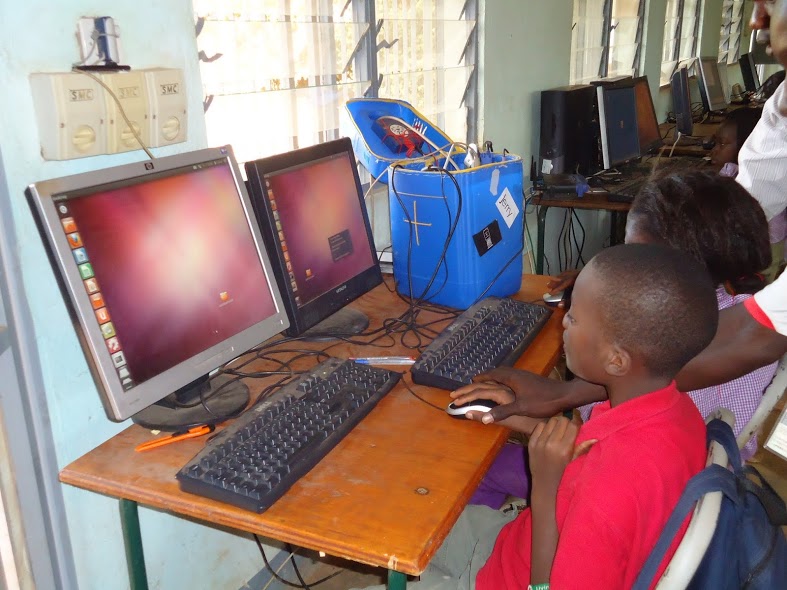Dubai airport is like a shopping mall in the underbelly of the Star Trek Voyager with patches of greenery that resemble what they think Earth looks like. After pit stops there and on the runway amongst lagoons and resorts in the Maldives I arrived in Colombo, the host city of this year’s World Summit Youth Awards. The hotel and main venue was a semi-realised dream of money and glamour that didn’t quite hit the mark, with oversized chairs in its lobby that gave it the air of a high-end bank in Alice in Wonderland.


The next day the conference was officially opened in the old Sri Lankan House of Parliament, with the President of Sri Lanka as the keynote speaker. Over the next few days I got to know, be inspired by, and share stories, drinks, and moments with young people wiring bombs of innovation around the world.
The World Summit Youth Awards are given to organisations and people breaking new ground with their usage of e-content. The organisations and projects, with members under the age of 30, are using technology and new media to “create outstanding digital content that serves as a platform for people from all UN member states to work together in the efforts to reach Millennium Development Goals.”
Here are the 18 winners in the 6 categories:
Fight Poverty, Hunger, and Disease:
Friends To Support – India
One of the largest blood donation organisations in India, Friends to Support uses its website and applications to source voluntary donors and those in need on a common platform. Donors are able to input basic information to sign up on the app, and donor seekers are able to do a simple search on the same platform. The organisation raises awareness and solidarity regardless of class, caste, or creed through rallies and events.
Diabetes.bh – Bahrain
As the first online platform to tackle diabetes in Bahrain, this organisation uses stakeholders in the diabetes ecosystem (specialists, hospitals, clinics, universities) to provide key services as well as information through news and blog sections.
Yomken – Egypt
Connecting craftsmen with little to no technological experience with creators, problem solvers, and investors. By combining crowd funding with an open source platform, Yomken allows creatives to share their ideas and see if there is interest in the community to invest. In the same way, it allows craftsmen and small businesses to connect with tech creatives who can help them realise their ideas in an online space.
Education for All:
iScuela – India
Through this tablet-based programme, schoolchildren around India are able to have access to learning material for an entire year without the need for an internet connection. Using images, audio, video, 3D animations, and other interactive methods, the programme can deliver and simplify complicated content in an accessible way. With the tablet generation gaining momentum and hardware prices falling, the team see it as an opportunity to address educational issues throughout the country.
The Lift Initiative (LISTA) – Colombia
This self-teaching platform is the first tablet-based education programme targeting women in rural areas and empowering them through financial information and trainings. Distributed in the community, the tablet-based app teaches users how to navigate the formal financial system, receive tips on managing their household finances, and access a wide range of information despite geographic barriers.
Challenge: Youth – Slovenia
Challenge: Youth (C:Y) is a Global Youth Think-DO-Tank that engages, fosters, and supports young local talents in creating collective environmental, social, and economic initiatives, helping them become the global citizens of tomorrow, with an international online youth community of over 35,000 members from 242 countries and 1,802 schools across world. Through online competitions, they get young innovators to come up with solutions for global problems.
Power 2 Women:
African Queens Project – Tanzania
The African Queens Project is an interactive website sharing the stories of women around Africa. The platform highlights struggles, triumphs, and victories of African women of every generation and the steps they’re taking to make a difference in their communities and nations, so as to motivate and inspire other women who want to do the same or partner with them. The website content includes blog entries, videos, podcasts, and pictures. Regular updates with content and the interactivity with social media is essential to the project. Each month there is an “African queen of the month” featured on the website with a special radio and video interview.
Get Water! – Canada
Get Water! is a story-driven, gesture controlled, endless runner-game for mobile touchscreen devices. It tells an engaging tale about the protagonist Maya, a brave young teenage girl who gets pulled out of school to fetch clean water for her family. The purpose of Get Water! is to raise awareness of water scarcity and how it directly affects girls’ education. “Having a young, confident teenage girl as the lead character is breaking the industry norm, and giving hope to young girls who love to play games as much as their male peers,” says project leader Tuuli Saarinen.
Connecting for My Health – Guatemala
Connecting for My Health is an SMS system that aims to empower young women and girls in rural areas of Guatemala with information regarding the prevention of child and teen pregnancy, sexually transmitted diseases, and HIV. Through messages, the girls receive free weekly information for seven months but can also ask educators directly about how to take care of themselves. The platform targets youth in 13 rural municipalities using educational games and mobile phones to transmit knowledge and inspire users to become disseminators who will reach even more girls.
Create Your Culture:
Lendabook – Indonesia
Lendabook is a social networking site where anyone can facilitate the mutual borrowing and lending of books wherever they are. It lets people make friends, share books they own, and borrow them from each other. Lendabook is becoming a giant digital library scattered in various regions of Indonesia with diverse collections of books. As the value of books increases with growing ease of access, Lendabook is bound to promote the culture of reading.

Image via youandjerrycan.org
Jerry Do It Together – France
Jerry Do It Together is an open-knowledge project that focuses on the building process of IT infrastructures. It brings together citizens that have decided to build a more inclusive digital society. A Jerry is a customized computer inside of a plastic jerrycan, built together with its end users. Made out of end of life materials, they are the low-cost solution for digital empowerment. The project compiles open-source building manuals and free tutorials assisting everyone to create a Jerry of his/her own. Today, around 450 people are actively participating or following the project’s activities in Europe (France, Germany, Ireland) and Africa (Algeria, Ivory Coast, Togo, Benin).
You Are What You Post – Mexico
“You Are What You Post” (“Eres lo que publicas”) is a social campaign aimed at reducing the negative consequences of inappropriate use of digital social networks. The website focuses on a strategy for young people, advocating the proper use of social networks to turn them into platforms for personal wellbeing and offering protection against cyber-crime. The project encourages moderation in the use of online networks in order to avoid social isolation and computer addiction, and raises awareness of the personal and professional consequences of posting inappropriate or discriminatory content, as well as one’s geo-location in real time.
Go Green:
Viadedo – Paraguay
Viadedo is the first carpooling platform in Paraguay that offers car owners with a spare seat a place to post their planned routes, so that passengers can join them. People gain another means of transportation and car owners save money on fuel. Considered to be dangerous, carpooling was once a controversial topic in Paraguay. To overcome this perception, Viadedo targeted safety as the major priority in the project’s development, allowing users to check drivers’ credentials on Facebook. Car owners can also post a route that is only visible to their Facebook friends or friends of friends.
Book for Book – Greece
The Book for Book website provides high school students with the possibility of matching requests and exchanging books of particular interest. In the spirit of solidarity and environmental awareness, the platform aspires to host young students and parents who wish to find books online for free, quickly and easily. Platform users can offer or search for specific textbooks that other users living close to them may have already offered. A meeting can easily be arranged for the book exchange to take place. School principals or even students within a specific neighbourhood can organize a meeting for a large-scale exchange of books between classes within a school or in a public place.
Withaa – France
The Wiithaa website is an upcycling network. Upcycling is a way of recycling by adding value or new use to objects or materials thanks to design, helping companies to give new life to their waste. The Wiithaa Lab invites designers, engineers, and other specialists to evaluate excess production and to offer local synergies, find new partners, and especially develop prototypes of new products or new services. Wiithaa accompanies users in the implementation of these new processes. By applying design thinking to the problem of waste, businesses and communities can use the proposed solutions to reduce or recover the waste they produce, whether at the production or distribution stage.
Pursue Truth:
B The Media and Kalabash – Zimbabwe
Kalabash is a website that was launched in mid-2013. Its content draws in perspectives from around Zimbabwe with contributors from the capital and the smaller cities. As a budding platform for the youth, Kalabash was visited over 11,000 times in its first month. It has been recognised by many public figures, including the nation’s Minister of Sport Arts and Culture, who praised and shared content on social media. The intention of Kalabash is to build a culture of free expression amongst the youth. Through B The Media workshops in schools and elsewhere, the site finds audio, written, and visual content to publish online.
Social Cops – India
A belief that citizens’ voices can be harnessed as a resource led to the invention of Social Cops, a technology platform that crowdsources citizen reports regarding civic issues and forwards them to relevant authorities. Google Maps integration & GPS tracking allows the user to identify the relevant authority in a given case and forward the complaint via a customized dashboard with automated daily/weekly analytics. Social Cops uses citizen data and matches it with third-party feeds to increase accountability and to incentivize public servants.
Yes AYV Creative Youth Media Project – Sri Lanka
The Yes AYV Creative youth media project was launched in 2011 with the support of UNHABITAT and Adobe Youth Voices. Over 100 under-served youth were trained in digital media creation. Yes AYV has been a telling success, polishing young people’s skills in teamwork, self-expression, interactive dialogue, and digital journalism so that they are able to report on issues relevant to their lives. By learning to create and publish digital media on interactive social platforms, once deprived youth have turned into active participants addressing the public interest of their community, country, and world.
Information gathered from: Winning Projects 2013 | youthaward.org